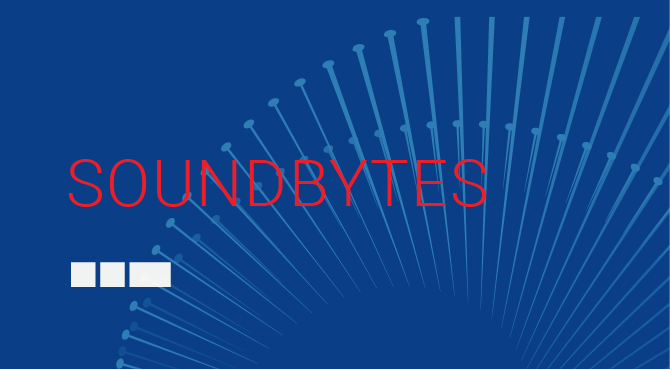Interview with Fernando Luis Vázquez Cao, CEO SBI DAH – ‘Why regulation is friend not foe.’

By SBI Digital Markets
2022 was a fruitful year for SBI Digital Markets (SBI DM) and for its parent company SBI Digital Asset Holdings (SBI DAH), and 2023 is already tracking to be even more rewarding. This week’s SoundBytes catches up with SBI DAH’s Chief Executive Officer Fernando Vasquez Cao. The Spanish native has spent the best part of 20 years in Japan, working for giants like telco NTT and lecturing at the Kobe Institute of Computing (Grad School), before joining SBI in 2016 and then setting up SBI DAH in 2020.
–
Can you share some highlights from 2022?
Apart from SBI DM being awarded its CMS Licence and forging relationships with Securitize and Fireblocks, SBI DAH had plenty of other news to share in 2022. This included a joint venture between SIX and SBI DAH to launch AsiaNext a trusted and regulated exchange for institutional investors in Asia and globally. Additionally, SBI DAH partnered with JP Morgan and DBS Bank, in the MAS-led initiative Project Guardian, which we presented at the Singapore Fintech Festival.
So what’s in store for 2023?
So far this year SBI DAH has already deepened its investment in Boerse Stuttgart Group’sdigital business,Börse Stuttgart Digital. And we just announced our exciting new partnership with Standard Chartered-backed Zodia Custody to launch SBI Zodia Custody Co. Ltd – Japan’s first tier 1 crypto asset custodian. We have more announcements in the pipeline.
These are how we’re delivering on SBI DAH’s stated Vision, ‘to be a market-leading provider of digital asset solutions and digital banking services to the financial and technology sectors.’ Around 2015 SBI Group started making some really interesting investments, which is one of the reasons I came on board in 2016. Then in 2020, SBI DAH was set up to operationalize the vison, to take it the last mile. So, we’ve been creating a digital assets ecosystem. And we’re continuing to do so by whichever means makes sense for different parts of the value chain – whether that’s to build our own components, to buy an existing entity, or to partner with companies that are the right fit for our intended goal – not just in Asia, but also in Europe and the US.
What were some of the key learnings from Project Guardian?
An important part of Project Guardian was to tokenize products that are already familiar – DBS successfully tested out the trading of foreign exchange and government securities on a public blockchain. Moving forwards, the future lies will see a range of different digital assets like CBDCs, stablecoins, tokenised deposits and possibly others. But from our point of view, safety, security, and cyber protection is the primary objective – experimentation is a secondary objective.
As a result of the MAS-led Project Guardian initiative, together with J.P Morgan DBS, and Oliver Wyman Group we co-authored a whitepaper called ‘Institutional DeFi. The-Next-Generation-of-Finance? It contains a lot of the key learnings, as well as defining ‘Institutional DeFi’ which combines the innovations of DeFi protocols with the safeguards of today’s finance industry.
Why do you feel regulation is so important?
Well, I was part of the dot.com boom, back in the 2000’s. I was one of those guys in shorts, being jetted around the world. Back when ‘freedom to fail’ and ‘fail often, fail fast’ were the catchphrases. We believed everything would and should be immediate, without any regulation because back then the Internet didn’t really exist as we know it now.
But failure is not an option for digital assets. ‘Moving fast and breaking things’ was maybe acceptable for web 1 or web 2 – but not in financial services, where the cost of failure is much higher. I’ve said this before, but who cares if something like Pets.com goes under? It’s not their money. But if you’re building a platform with billions of dollars in AUM (assets under management), then the stakes are much higher – this is real people’s money and savings.
Are you ever frustrated that partnerships, and regulatory approvals can take time?
Not at all. There are so many clichés I could use right now, Rome wasn’t built in a day, this is a marathon not a sprint. From my own experience in the early open-source movement, governance is key. To be in everybody’s best interests, it needs to be multi-stakeholder and highly collaborative. From an open source perspective, it was only when IBM committed millions of dollars that open source became mainstream. Something similar needs to happen with DeFi, we need trust anchors and gatekeepers, that’s going to be the game-changer.
We hope that the blockchain and DeFi innovators are also learning from the lessons of history – from the last 20 to 30 years, when a lot of financial disasters have happened. That’s the real threat currently – as the possibilities grow, they are public, they are open, people are playing around with them, and people could end up losing a lot of money.
This is the future and all banks, as part of their data processing journey, should be heading towards that.
